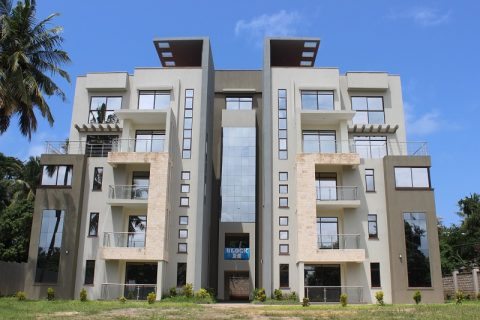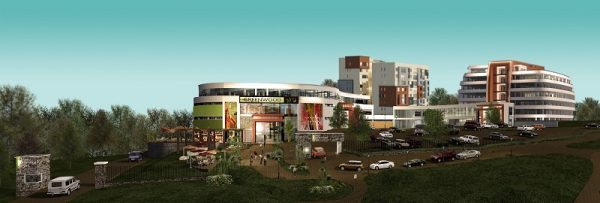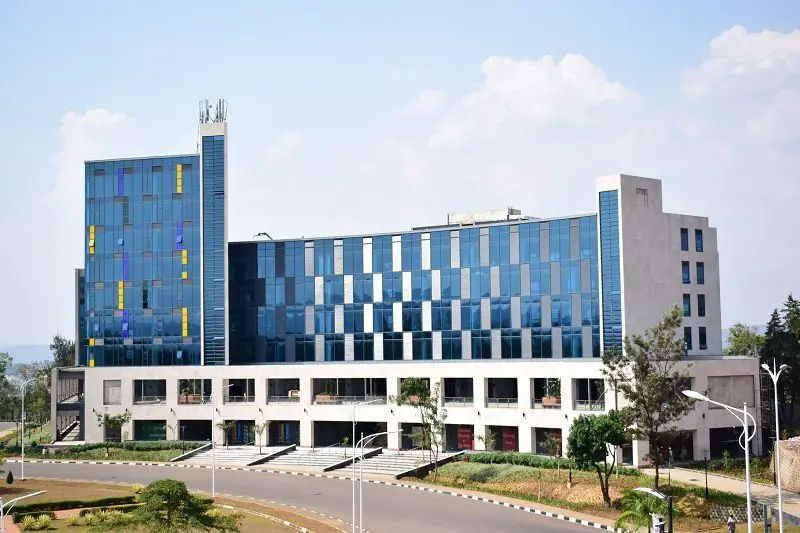By Dennis Ayemba
Naturally human beings require shelter as a basic need. Fusion Capital entered into real estate with an intention to play within the middle class segment of the market where they felt there was a gap. According to Mr. Daniel Kamau the Executive Director, Real Estate at Fusion Group, It was their intention from the beginning to do projects that are deliverable within a period of three years, and allow an additional two years to be able to exit those investments.
Fusion Capital is a real estate developer and private equity firm established in 2006, designed around the needs of local businesses in the emerging economies of East Africa. “Initially we started off as a micro-finance operator based in Nairobi, doing off-market debt and micro-equity. Basically, micro-equity is where you put in very little capital but in form of equity and the balance goes in as debt. The idea was to grow that and ultimately get to a level where you can then treat them as pure primed equity investment. That is what we call an ‘up the mountain’ model,” said Mr. Kamau.
In 2012, the company entered into real estate mainly supported by a number of factors: the growth the country was experiencing; at that point the economy was growing at 7%, and a lot of businesses were looking at settling within East Africa, mainly Kenya.
Since 2012, they have invested in about 13 projects, spread across East Africa. A majority of them in Kenya, but in terms of investment size, Kenya leads and closely followed by Rwanda then Uganda. According to Mr. Kamau, Kenya leads because it very well supports real estate. “We have a fast growing middle class, the income capabilities in Kenya, and the availability of mortgages compared to the other countries is at a far much better position,” he said.
“Our investment is bigger in Rwanda than in Uganda basically because we had a ‘first movers’ advantage on the offices and retail side. Then we realized that the areas we picked we were amongst the people who went in very fast to fulfill the requirements of the Kigali Masterplan which they had just started implementing; so we took advantage of that. Around that time Uganda was experiencing saturation on the office supply side and there was quite a number of retail that was already going on; so that informed our going into Rwanda,” explained Mr. Kamau.
Of the 13 projects they mainly invest in three sectors: Residential which basically means dwelling, commercial which basically encompasses offices and retail; and logistics and distribution which is warehousing a sector that they are now going into and looking at a couple of transactions in Kigali and Kenya.
Some of the notable projects they have done include the Kigali heights in Rwanda. In terms of publicity and it as a project, it stands out for various reasons: Its location, use and design. “It is located opposite the Kigali Convention Center which is arguably a very prime position for a mixed-use development. It is mixed-use comprised of retail and office whereby office takes up 75% and the balance goes to retail; and it is designed in such a way that there is a very good interface between the two,” asserts Mr. Kamau. “The building was launched by President Kagame,” he added.
Their other projects include: Furnished apartments in Uganda Bukoto area, 64 apartments in Nakuru at Kiamunyi, 88 units in Mombasa near Mtwapa, mixed-use development in Meru among many others.

According to Mr. Kamau, Fusion Capital mainly stands out in the market because it has skin in the game. “Unlike other investor developers who only come in with the expertise, fusion comes in with the money and expertise to manage and deliver. We have also developed a track record over the years of delivering projects on time and on budget which can be said of Flamingo and even Kigali Heights which by East African standard compares well with some known developments which have taken a very long time to deliver. Skin in the game means we get very much involved and push everyone involved in the project to deliver,” explained Mr. Kamau.
With regards to challenges in the industry, Mr. Kamau is of the mind that, availability of data in the real estate industry is a primary problem; but the secondary problem which is closely related, is the reliability of the available data. “Sometimes when you deal with other developers they rarely tell you what the true position is; and that is a challenge across the East African market. To make a decision you are really have to go on the ground and sit on the ground to make sure they do all the necessary due diligence; hence it costs more, to get a good deal on the table,” he said.
He also pointed out mortgages in this market as a challenge. “We are still at below 30,000 mortgages a year and those mortgages now with the capping of interest rates are not better priced than standard normal debt which you would expect that for mortgages it should be able to be attracting 10-12% rate but we are still looking at 14% as a standard rate across the board. That then becomes a challenge because whereas there is demand for what developers put out there, they can only afford so much. That is why a lot of transactions that happen in this market on real estate are cash transactions. However, the supply in the market cannot be satisfied by purely cash buyers you need mortgages, better priced and structured mortgages,” he explained.
“We would probably want to see a financial institution that comes into the market and offers a solution around uptake of either houses or offices. That could go the direction of rental or tenant purchase schemes, where people pay the equivalent of rent to acquire houses over a long period of time. For an institution to achieve that they need patient capital from investors who are happy to chase a stable 9% over 20 years; pension funds could very easily do that. Hopefully, that institution will be Fusion Capital in the future,” he added.

Mr. Kamau insists that, the beauty of investing in Fusion Capital projects is that, for every dollar they ask you, they have already sunk in their dollar. That means there is huge alignment of the interests unlike with many other developers who would bring on board a land owner, and they would come in and charge a fee for being involved in the transactions.
“International investors should be aware that, Africa real estate will continue delivering way higher returns compared to other investment. The good thing about investing in real estate is that, you invest in something tangible. Africa remains a growth a region and it will continue out-competing other continents for some time; therefore this is the right time to invest in real estate, school fees has already been paid,” he advised.
Fusion Capital is also involved in private equity investment, insurance and fund management. All these investments are under the umbrella of Fusion Group.

Leave a Reply